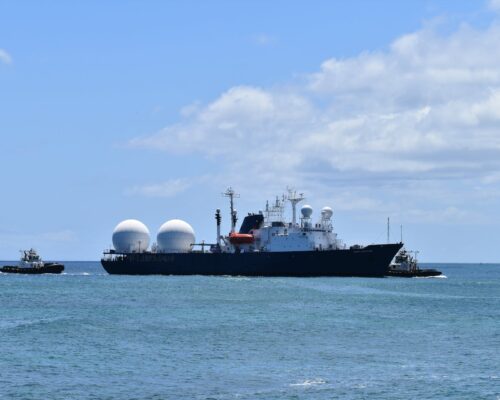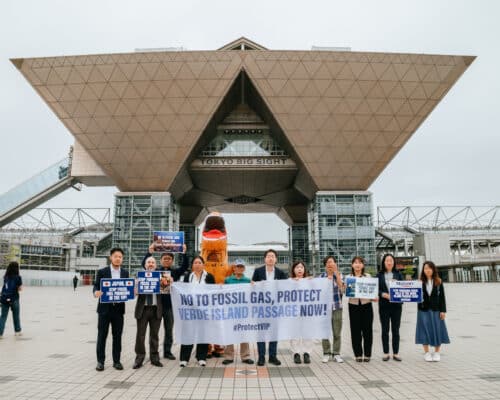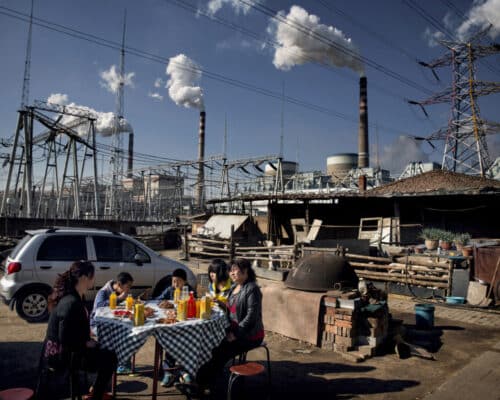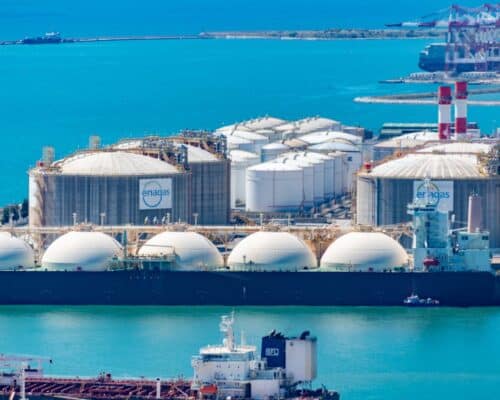Wind Energy: Advantages and Disadvantages
Source: KTOO
15 August 2022 – by Eric Koons
The wind energy sector is one of the fastest-growing renewable energy sectors, yet still, there are several advantages and disadvantages of wind energy. The pros of wind energy are pushing adoption to new heights, yet the cons of wind energy are holding back investors.
What is Wind Energy?
Wind energy is a clean and renewable source of power generated from the wind. Wind turbine uses the kinetic energy in the wind to generate electricity. Wind power is a growing source of electricity in the United States and around the world.
Wind Energy: Pros and Cons
There are many pros and cons of wind energy. When deployed at a large scale, wind energy provides very cost-efficient power generation that capitalises on natural wind patterns. It is a relatively simple technology that humans have used for millennia and is expected to account for 1800 MW of global power capacity by 2030. Although high upfront installation cost is one of the biggest drawbacks of wind energy.
Advantages and Disadvantages of Wind Power
The world is opting for sustainable energy and energy efficiency to reduce greenhouse gas emissions and clean energy production. The renewable energy industry is booming as well as the wind power industry. As a potent renewable energy source the number of wind power plants and wind farms is increasing day by day. Here are some of the prominent advantages and disadvantages of wind power.
Advantages of Wind Energy – Pros
1. Wind Energy Is Renewable
One of the most fundamental reasons wind energy is increasing in popularity, and one of the biggest pros of wind power, is that it is renewable at a time when the global transition to renewable energy is picking up pace. Wind is present worldwide, and many regions have constant wind corridors that are ripe for use. Unlike finite fossil fuels, wind energy will remain available indefinitely. When it comes to the pros and cons of wind energy, the inherent characteristic of being renewable is one of the main advantages of wind power.
2. One of the Cleanest Forms of Energy
Wind energy can be harvested using relatively basic technology, making it one of the cleanest forms of energy. This is because it does not produce any direct carbon emissions. However, indirect emissions occur during the turbines’ manufacturing process. That said, the associated manufacturing emissions are much lower than those associated with fossil fuel facilities.
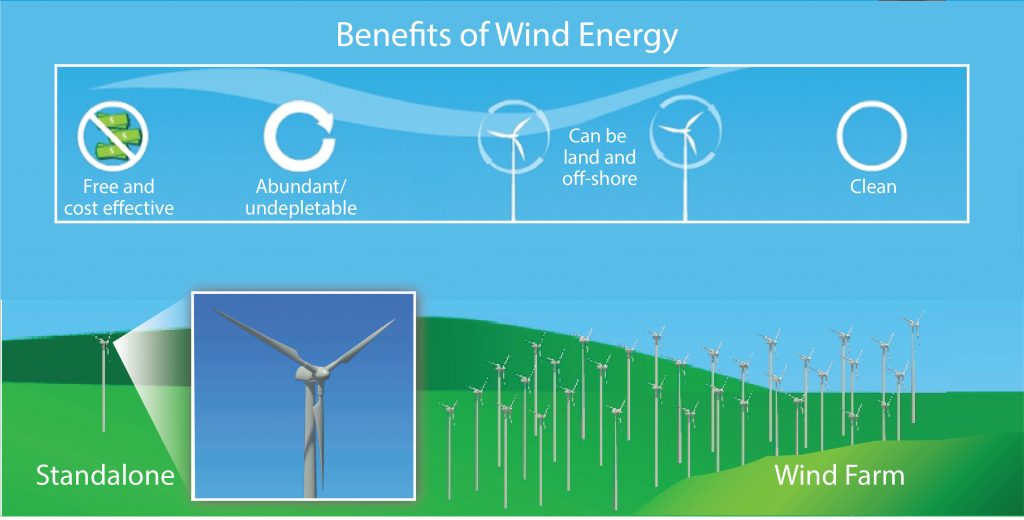
3. Job Creation
Wind creates jobs. Wind energy is a fast-growing industry that needs an increasing supply of workers. These range from design professionals to manufacturing, installation and maintenance workers. This demand comes at a time when fossil fuel employees are seeing a decline in jobs, providing a great opportunity to reskill workers into the wind sector. Experts predict that the wind energy industry could generate over 3 million new jobs over the next five years.
4. Wide-scale Implementation
Wind energy and turbines are versatile. The turbines come in different shapes and sizes and are adaptable to wind conditions in specific geographical locations. This includes onshore, offshore and floating turbines, as well as turbines on buildings. The temperature differences on the Earth’s surface make the oceans a wind hot spot. As a result, the installation of wind farms at sea is becoming common.
5. Low Operational Cost
As mentioned previously, the base technology used for wind turbines is relatively simple. Current offshore wind turbines are efficient and cost-effective, but more importantly, operational costs are relatively low. This allows the savings to be passed on to consumers, making the levelised cost of energy (LCOE) cheaper than fossil fuels in many situations.
Disadvantages of Wind Energy – Cons
1. Risk to Wildlife
While minimal, wind energy can affect local wildlife near the turbines – specifically birds. It is one of the disadvantages of using wind energy. Instances of bird strikes on turbines do happen, but researchers are finding ways to reduce the risks to wildlife through innovative designs. However, the fact remains that the loss of biodiversity due to wind turbines is much smaller than from fossil fuels like coal or natural gas.

2. Intermittency of Renewables
One of the inherent disadvantages of wind power is inconsistency. The natural cycles that make renewables renewable also make them inconsistent. Wind does not constantly blow at the same rate, meaning it does not always produce electricity. The wind blows inconsistently, and the wind speed is not always the same. However, when paired with energy storage systems, such as large-scale batteries, renewables like wind energy can store their excess power for use during periods of low generation.
3. Upfront Costs
Although they are cheap to manufacture and run, the installation process is costly. This is one of the main cons of wind power. The need for multiple turbines to be set up together as part of a wind farm can inflate the upfront costs of wind energy. Additionally, more complicated offshore projects require an extensive transmission infrastructure to connect the systems to the primary onshore grid and population centres.
Wind Energy and Other Renewable Energy Is The Future of Electricity Generation
Renewables will power the future. There are many merits and demerits of wind energy but wind power has overtaken solar in demand and capacity-building though you can’t install wind turbines on homes, while other sustainable power sources also continue their upward trajectory.
Wind’s flexibility, versatility and low operating costs make it an attractive energy option, especially when paired with energy storage systems. The benefits of wind energy outweigh the disadvantages of wind energy.
Wind, along with solar, geothermal, hydro and low-carbon alternatives, will be crucial in helping the world reduce its carbon emissions and greenhouse gases and meet global climate goals.
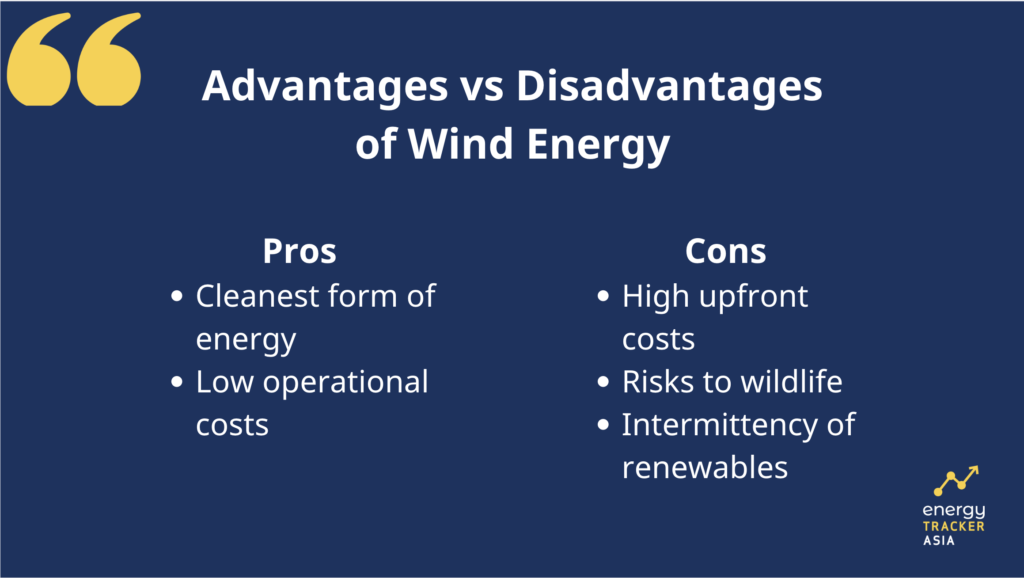
by Eric Koons
Eric is a passionate environmental advocate that believes renewable energy is a key piece in meeting the world’s growing energy demands. He received an environmental science degree from the University of California and has worked to promote environmentally and socially sustainable practices since. Eric’s expertise extends across the environmental field, yet he maintains a strong focus on renewable energy. His work has been featured by leading environmental organizations, such as World Resources Institute and Hitachi ABB Power Grids.
Read more